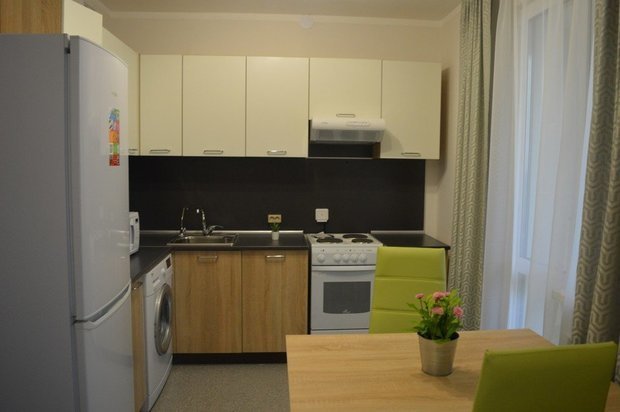Natalia Pyrieva: ‘Housing market has stalled and will depend on support measures’

The crisis has affected the dynamics of housing construction and commissioning in Russia, the market has entered stagnation, experts warn. The share of unsold apartments in new buildings has reached a record 66%, or more than 41 million square metres, of the total area of housing under construction, which is by 44% more than at the beginning of last year. The further development of the construction industry will depend on government support measures, says Natalia Pyryeva, an analyst at Finam. In the author's column for Realnoe Vremya, the expert considers options for solving the problem.
The market is stagnating
The real estate market is going through hard times during 2022. After a surge in demand at the beginning of the year, sales of new buildings collapsed in April amid the Russian-Ukrainian conflict and the Central Bank's rate increase to a record 20%. In the summer, market activity began to gradually recover, but this did not become a trend. After the mobilisation was announced in September, interest in real estate dropped sharply, and it became obvious that the market was entering a state of stagnation.

Preferential mortgages are no longer a large-scale driver
Preferential mortgages have provided significant support to the construction industry, and given the obvious downward trend in demand and prices in the market, the extension of the key mortgage programme will at least reduce the scale of the recession in 2023. Last week, Vladimir Putin said that preferential mortgages throughout Russia will be extended until July 1, 2024, while the rate will be increased from 7% to 8%. Putin also proposed expanding access to family mortgages and extending it to families with at least two children under the age of 18. Let us remind that the preferential mortgage is part of the package of state-subsidised loans and the perpetual rural mortgage at 3%, the family mortgage at 6% (until mid-2024), the Far Eastern mortgage at 2% (until 2030) and the IT mortgage at 5% (until 2024) remain untouched.
The extension of the preferential mortgage programme will provide moderate support to demand and, thus, to the construction industry, but as a large-scale driver of growth, this tool has exhausted itself, so new measures are needed. One of the initiatives of the Ministry of Finance was a proposal to expand the use of the above-mentioned subsidised programmes through transactions for the purchase of housing from closed mutual investment funds (ZPIF), which will increase the volume of housing commissioning by expanding the composition of its developers and sellers participating in preferential mortgage programmes.

Pros and cons of housing leasing
At the same time, the state wants to popularise housing leasing, which theoretically will allow a decent number of Russians to improve housing conditions, as well as support the construction industry. However, this tool currently does not enjoy high interest from both the population and developers. The housing leasing mechanism has been available to individuals in Russia since 2011, and in the context of the real estate market, the share of lessors is about 4%.
The main advantages of leasing real estate are more flexible terms than a contract with a bank when issuing a mortgage. The leasing company is loyal to the client's solvency, a minimum package of documents is required for the execution of the contract. The lessor undertakes additional manipulations on the transaction, including real estate insurance, pays property tax, and individual repayment terms are possible (monthly, quarterly). Importantly, the price per square metre in the lease agreement is fixed for the entire period.
There are also plenty of pitfalls in the leasing transaction. First of all, the interest on leasing is about 1,5 times higher than on a mortgage. The maximum term of the lease agreement should not exceed 10 years, therefore, with a high cost of real estate, regular payments will be tangible. Housing remains in the ownership of the lessor until the debt is fully repaid, so there is a risk that the company may take out a loan secured by this property and in case of bankruptcy, the secured apartment will go to the creditor bank. Besides, if the lease agreement is terminated, the apartment is returned to the leasing company, but its obligation to return the payments made by the lessee is not clearly spelled out in the law.

The leasing initiative can be successful if the developers themselves can act as a lessor, since the presence of a third party in the person of the leasing company increases the value of the transaction. On the other hand, leasing will be able to compete with mortgages if the leasing interest is less than the mortgage interest. Thus, regulators need to review the mechanism of leasing in the real estate market so that this tool becomes more in demand.
Buying tokens for housing
In addition, the possible use of a digital financial asset (CFA) is being increasingly discussed as a way of participating in shared-equity construction. In particular, Vladimir Potanin plans to issue tokens for the purchase of housing in remote regions of Russia, such as Norilsk, which would make it easier for people to sell (or exchange) real estate.
At the same time, one of the largest developers of Tatarstan, G-Group, intends to issue tokens tied to the cost of a square metre in two residential complexes under construction in St. Petersburg and Kazan in the near future. Tokenisation of residential space will reduce the entry threshold for real estate investments, that is, to buy any number of metres within one or more objects under construction. At the same time, the owners of the CFA receive all the advantages of an investor in real estate without buying “physical” housing and accompanying bureaucratic procedures. On the other hand, the presence of CFA in the housing market will attract more investors, which will contribute to the development of the construction industry.
Reference
The author's opinion may not coincide with the position of the editorial board of Realnoe Vremya.